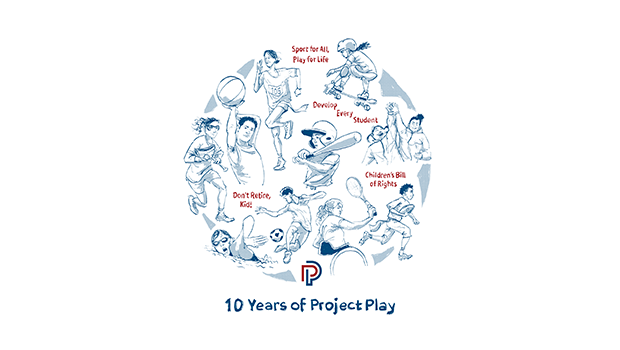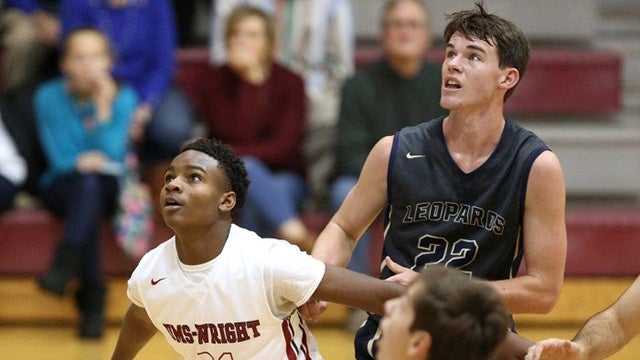The Institute’s Sports & Society Program recently launched the “Aspen Institute’s Project Play,” a two-year initiative that will convene sport, health, business and other leaders in a series of events designed to seek and share ideas about lowering the barriers to children’s access to healthy, positive sports activity. The project will ultimately offer a game plan to help stakeholders—from policy chiefs to parents—create “Sport for All, Play for Life” communities.
The April convening, supported by the Robert Wood Johnson Foundation, included more than 80 organizational and thought leaders, bringing together a stellar group of athletes and experts to talk about the importance of sports to children, adults and the nation at large. As one of the many events during the four-day session, ESPN’s Jemele Hill moderated “A Conversation with Olympic and Paralympic Athletes,” whose identities were largely formed by their participation in sports at all levels.
“Like any parent, you want the best for your kids and mine wanted their kids to be disciplined,” said three-time Olympic swimming champion Gary Hall, Jr., whose father was also a three-time Olympic swimmer. “I don’t know that my parents would have been as effective as a coach in certain situations in instilling discipline and toughness. I know they recognized that value.”
Others said the pursuit of sports gave them a sense of belonging—and self-acceptance—as children. Paralympian, Ironman athlete and “Amazing Race” competitor Sarah Reinertsen lost her leg at age seven to a tissue disease. She was taught to run using her prosthetic leg when she was 11. “Sport was so integral to making me feel good about my body,” she said. “(It) was really important to feel OK in my skin, for me to feel confident…Every human feels better when you do sport, but especially when you are in that ‘other’ crowd.”
And as four-time Olympic swimming medalist Nancy Hogshead-Makar explained, you needn’t have been a Paralympian to feel “other.” “I’m 50 years old…when I was really muscular and I was being a really great athlete, it wasn’t nearly as acceptable as it is today. So I really had to come to terms with not just my own body, but being an ambitious woman who wanted to achieve a lot,” said Hogshead-Makar, now a civil rights lawyer. “I’m the senior director of advocacy for the Women’s Sports Foundation. I know what sports did for me… I want to make sure that gender’s not the thing that keeps (someone) from having that great experience called sports.”
The Aspen Institute’s Project Play aims to find ways to address some of our country’s most pressing public health issues by reimagining the youth sport model in the US. Obesity and mental health are part of that focus. Watch below as Paralympic skier and former Marine Jon Lujan and the most decorated figure skater in US history, Michelle Kwan, join Reinertsen, Hogshead-Makar, Hall and Hill in conversation on the Institute’s Aspen Meadows campus.

